Irish Travellers - Unwelcome In Their Own Land
Previously traveling in horse drawn carriages, Irish Travellers are commercial nomads engaged in metalworking, horse-trading and construction. Legal changes governing access to public lands and the establishment of halting sites, semi-permanent locations with services, has had far reaching ramifications on their traditions.
With a distinct identity, language and customs, officially recognised by the European Union and only recently recognised by the Irish government in 2017 after decades of campaigning, Irish Travellers have been documented as part of Irish society for centuries.
With a life expectancy 15 years lower than the general population*, both Travellers living in houses and those still living in caravans remain the most marginalised, economically disadvantaged and discriminated against community in contemporary Irish society.
*All Ireland Traveller Health Study 2010
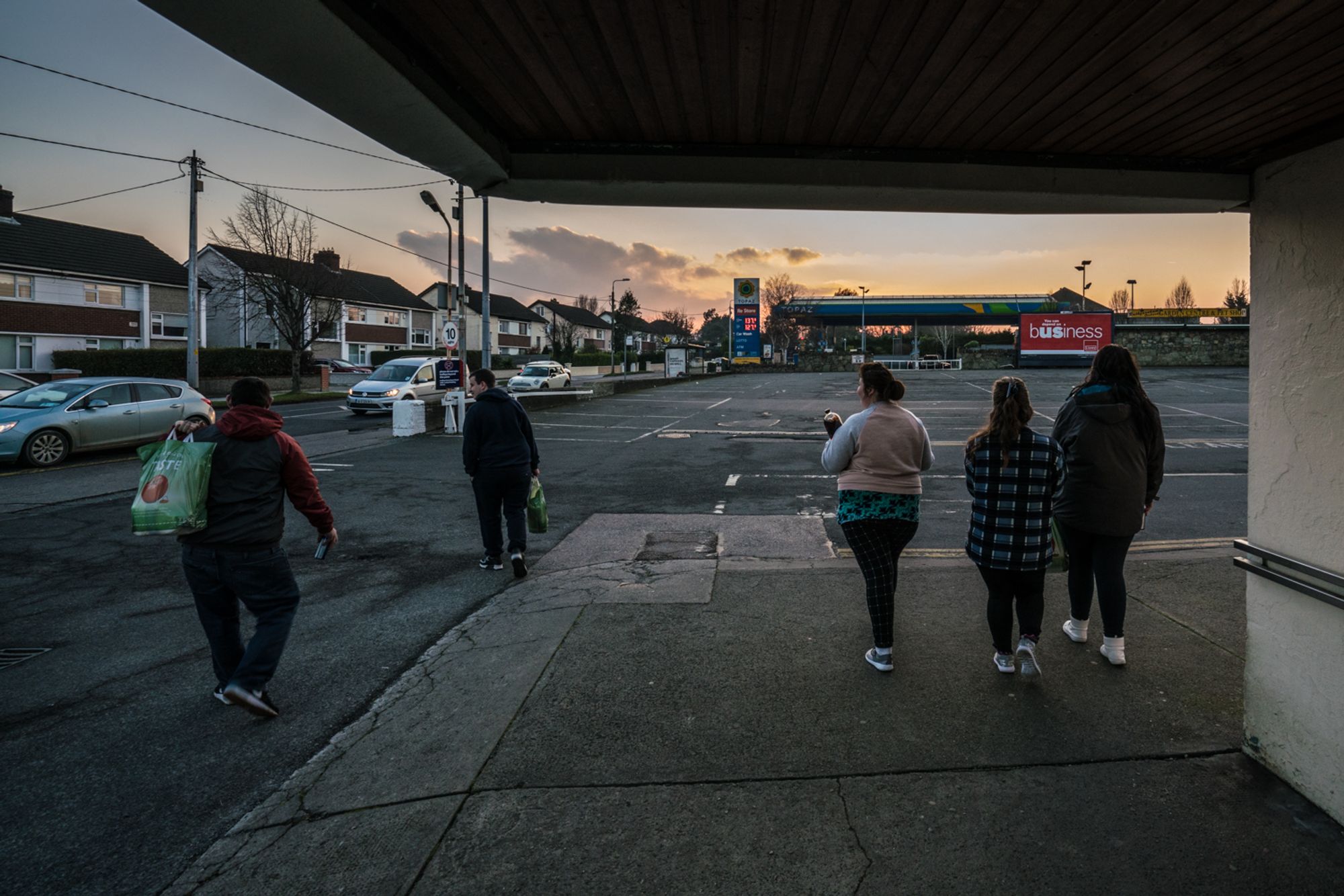
Martin, John, Mary, Margaret and Sarah, all part of the Irish Traveller community, leave their local shopping centre/mall to return home to their home in a nearby halting site. According to the 2006 census (Central Statistics Office, 2007) there were approximately 25,000 Travellers living in Ireland. This constitutes less than 1% of the population.
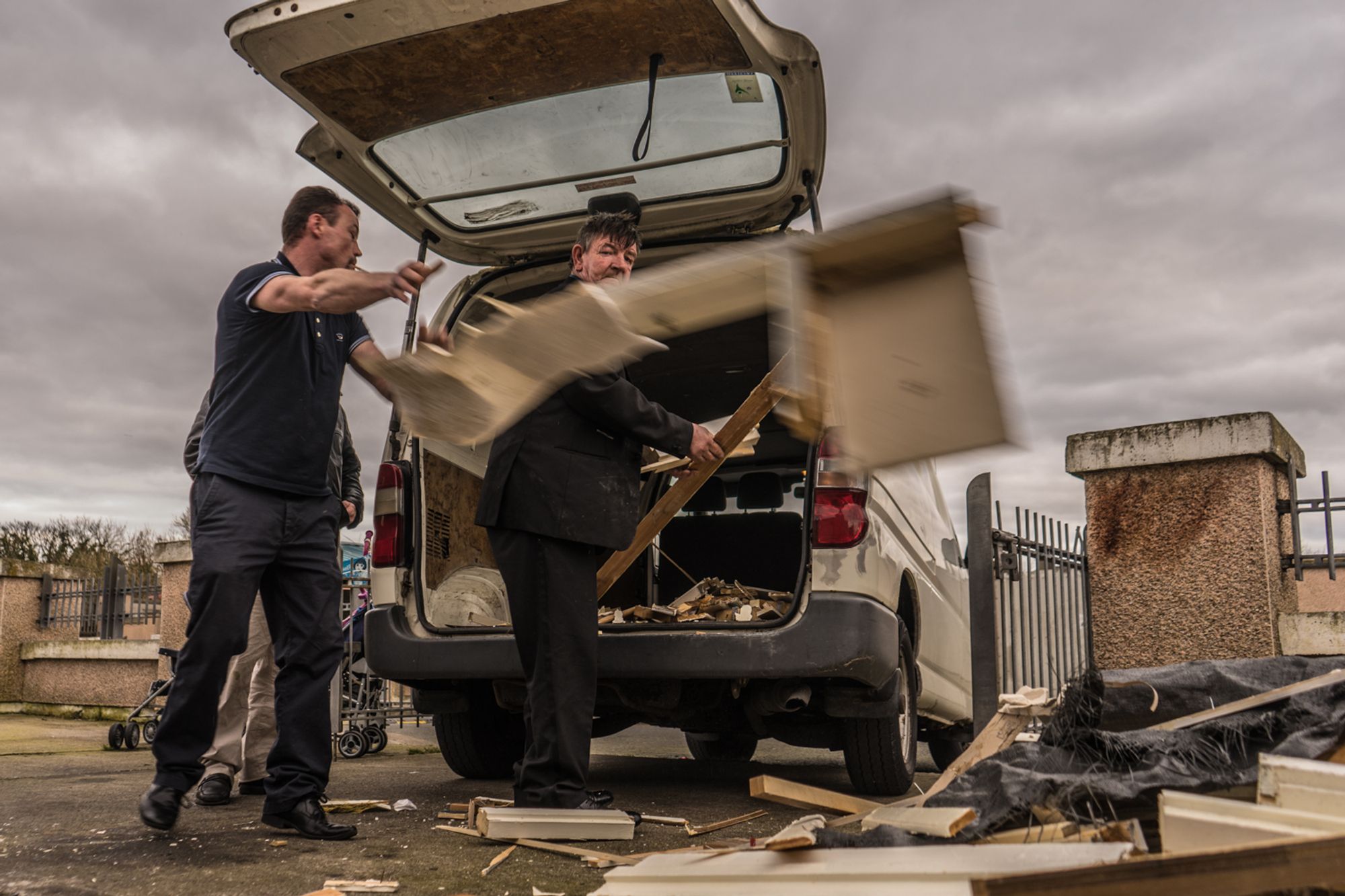
John (52) (right side of van), an Irish Traveller, removes broken furniture from the back of a van for firewood. Previously traveling in horse drawn carriages staying on public lands, the Irish Travelling community would earn income from metalworking, horse trading and general laboring. In recent decades, changes to laws governing access to public lands have had far reaching ramifications on their nomadic lifestyle.
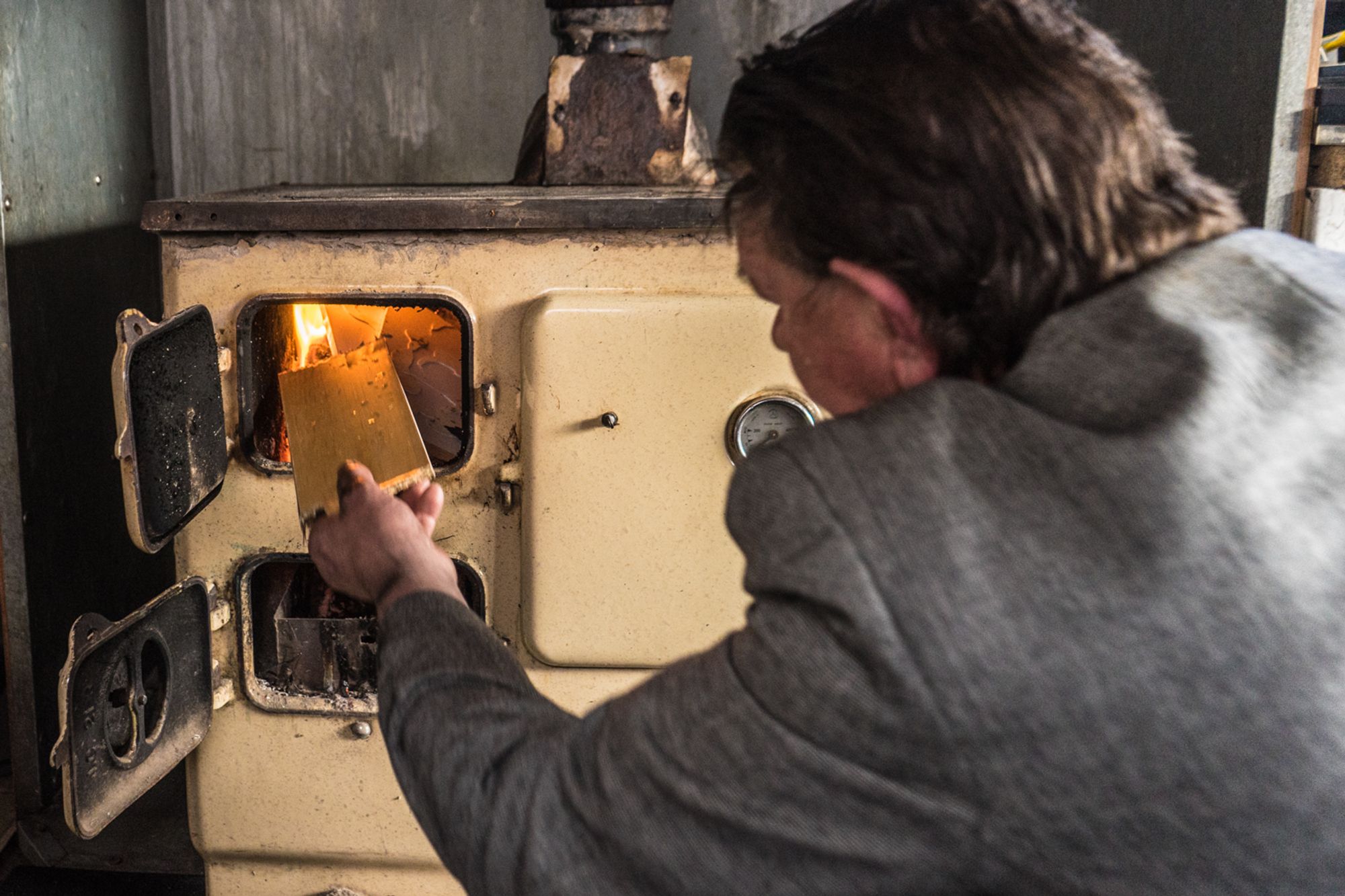
John (52) burns wood in a cast iron stove in his trailer for heat during the cold, wet Irish winter.
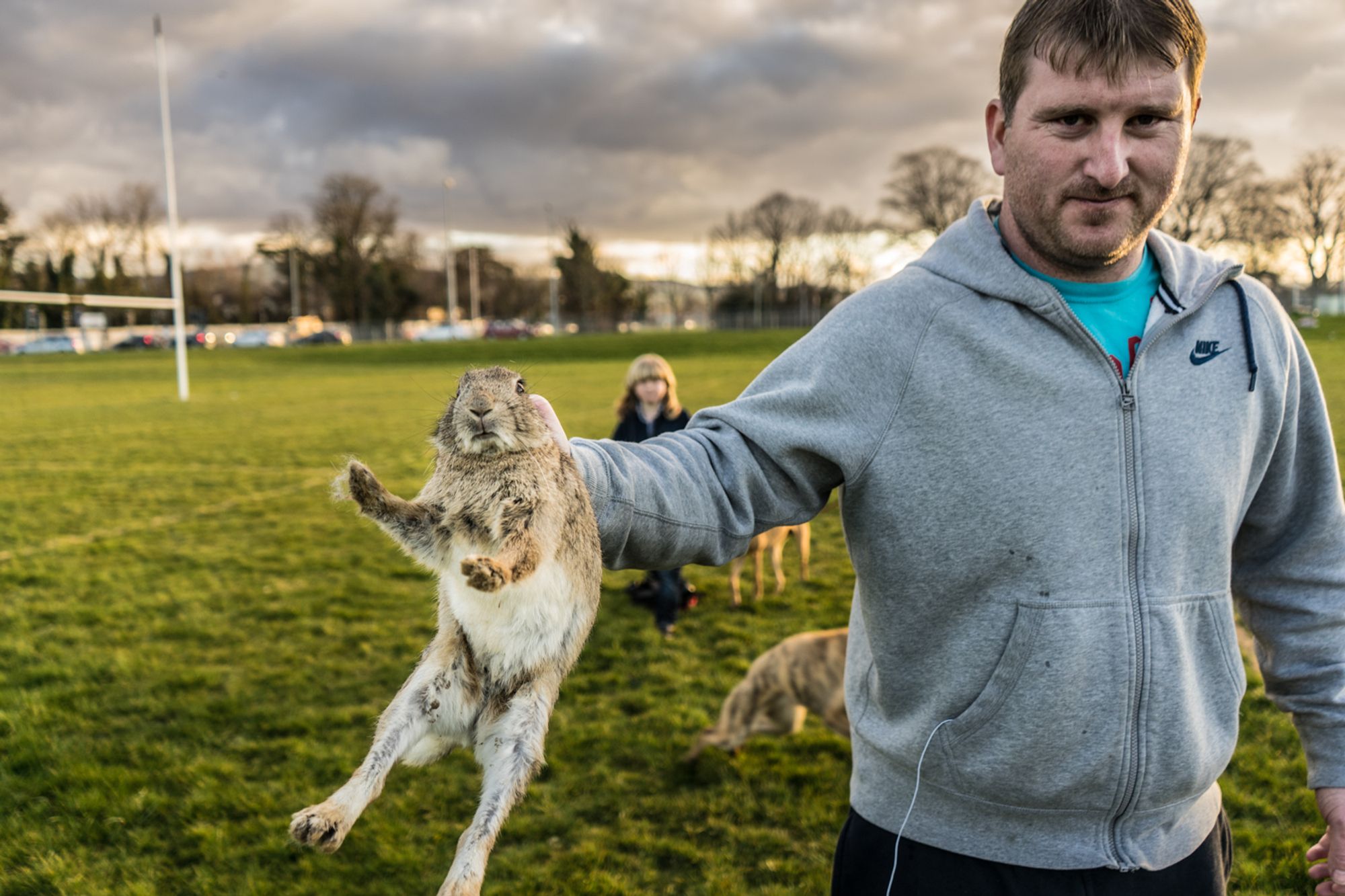
"My father used to catch rabbit and hare.", says Jack (52) an Irish Traveller. "We had to. Times were hard." Here Tommy (30), an Irish Traveller, holds a hare while his son stands with greyhounds and lurchers in the background.
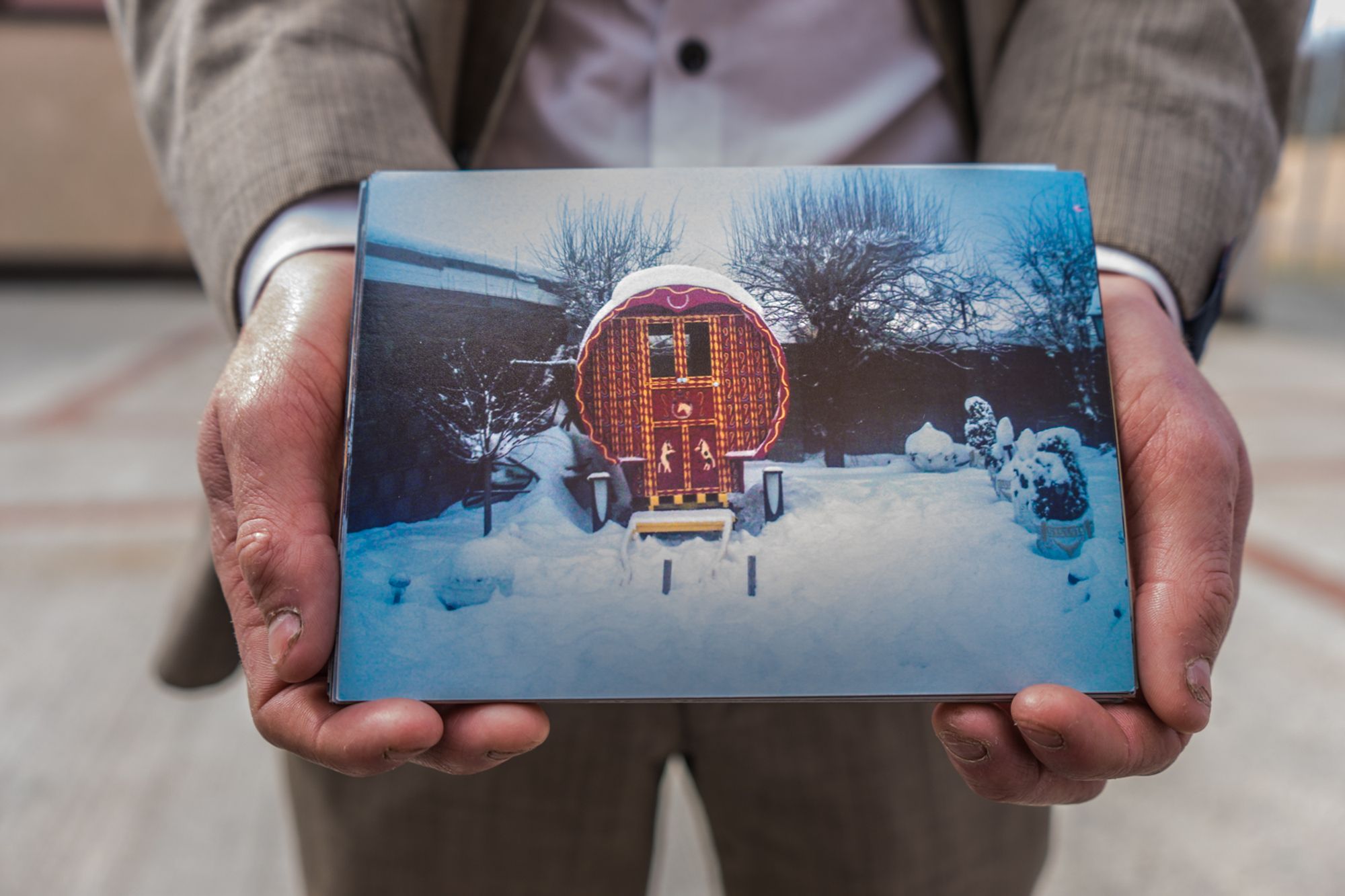
"We would travel up from Wexford, stop off for a night, put the wattles together, a bale of straw on the ground. Then we would travel on the next day." At a family wedding, Gerry (48) reminisces about his childhood when his parents would travel around Ireland in a horse drawn caravan. Over 70% of Irish Travellers now live in houses with approximately 18% living in a trailer/mobile home or caravan.
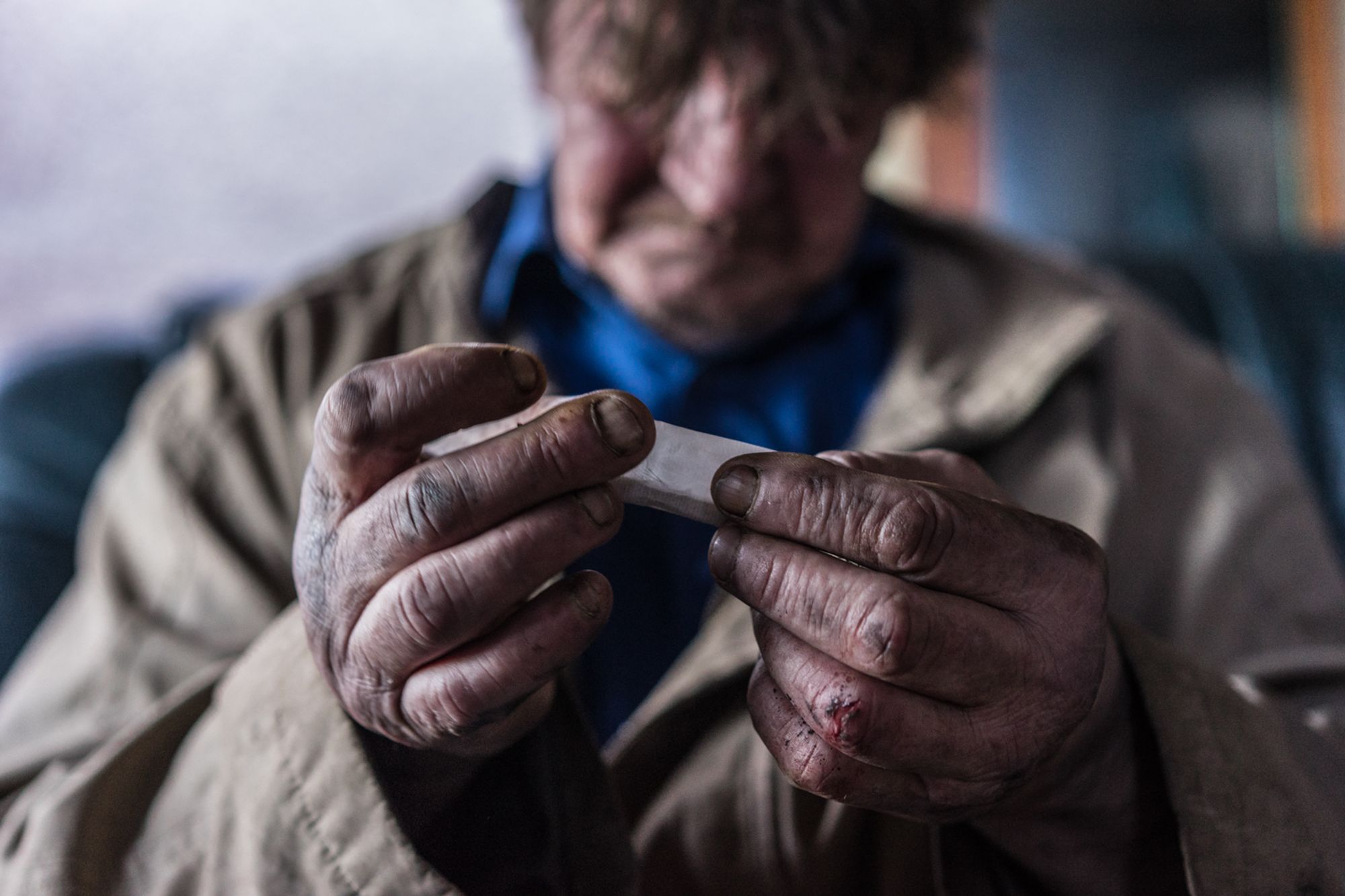
"My life hasn't been easy", laments John (52), an Irish Traveller, as he rolls a cigarette. The life expectancy of a male Traveller is currently 61.7 years, which is 15.1 years less than men in the general population. This is equivalent to the life expectancy of the general population in the 1940s according to the All Ireland Traveller Health Study 2010).
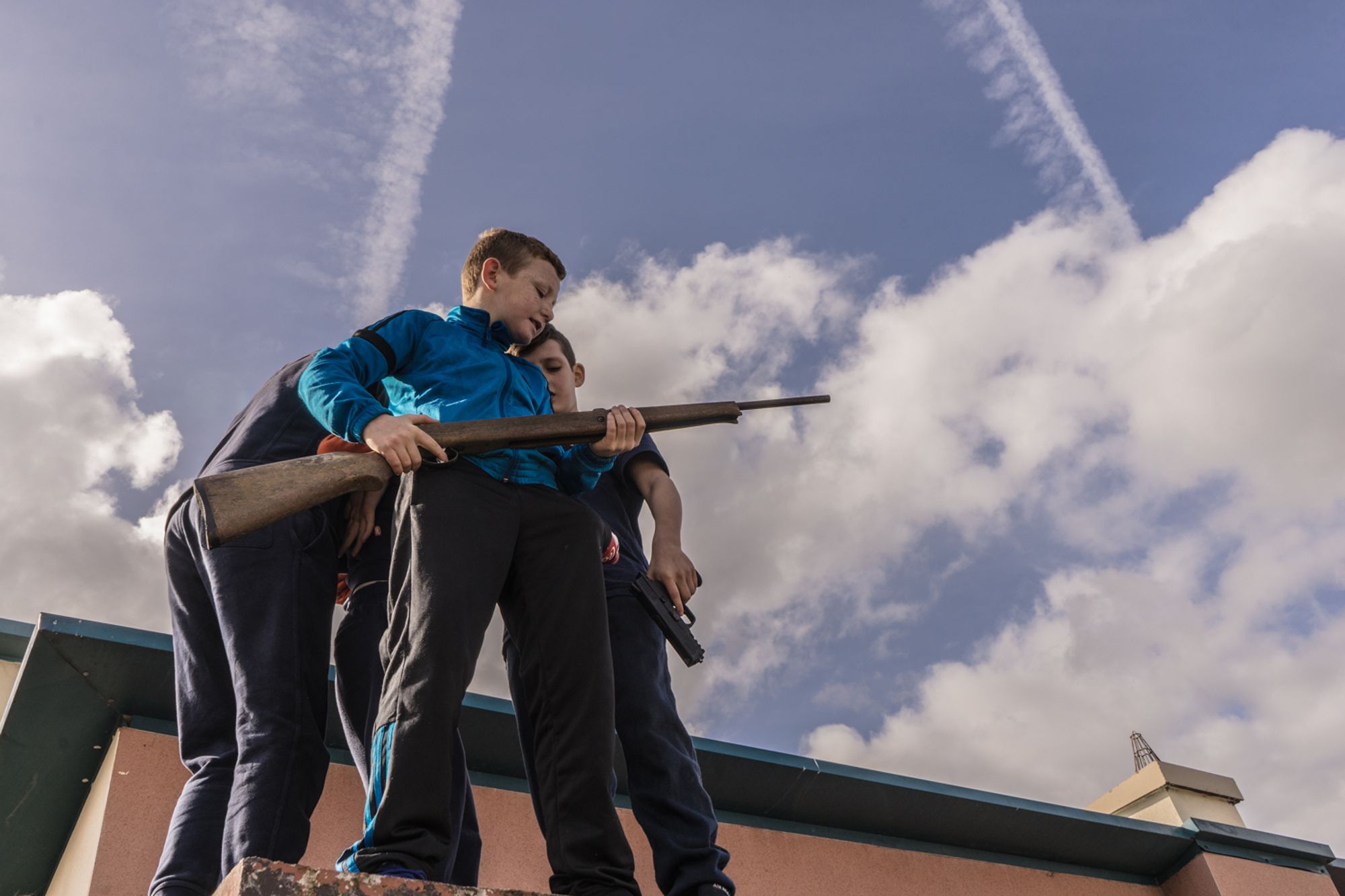
"Any community that is oppressed for decades and centuries and who are continually fed a message that they are of no worth, no value and that they don't have a culture and they just need to be assimilated and rehabilitated. At a certain stage in that community’s development, they start believing that message that they are of no worth, they are of no value and that we are inferior to the majority. Travellers have internalized that." Martin Collins, Director Pavee Point Traveller Rights Organisation. Jet trails cross the sky above as Irish Traveller youth play with an air rifle and plastic pellet handgun. Traveller men are at least 5 times more likely to be imprisoned than non-Travellers constituting between 4.6% and 8.7% of all prisoners in custody, despite being less than 1% of the population (per All Ireland Health Study 2010). The reasons are complex, including early school leaving, employment and identity issues.

"I haven't had an easy life", says John (52), an Irish Traveller.
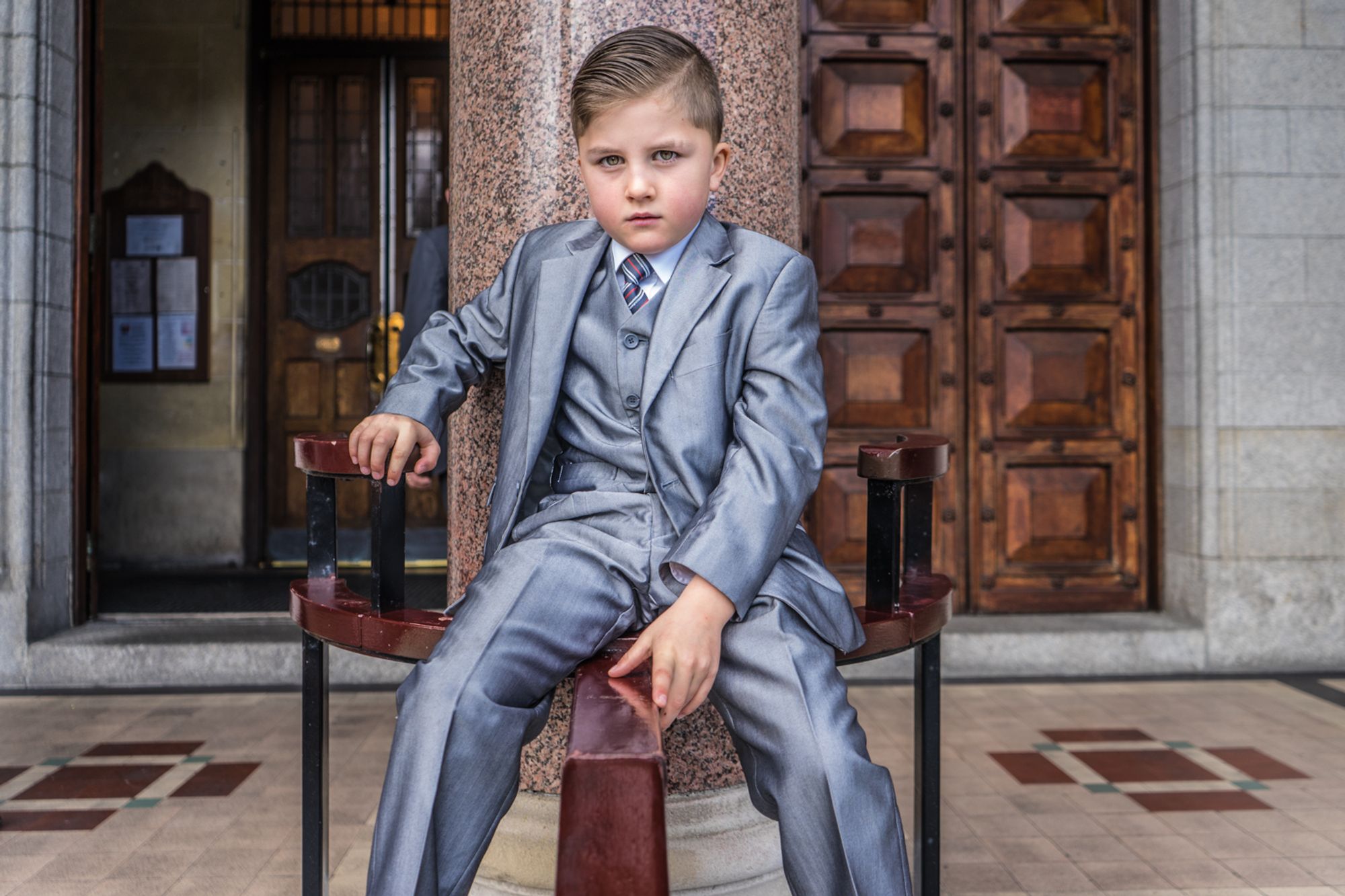
Paddy (8) waits for the bride and groom to arrive at a family wedding. Traditionally, Travellers marry young in their late teens and early twenties with 31.9% of Irish Travellers between the ages of 15-29 years married compared with 5.8% of the general population (per 2016 Irish Census). As with the rest of the 'settled' population, weddings, births and deaths are important social events in the Irish Travelling Community.
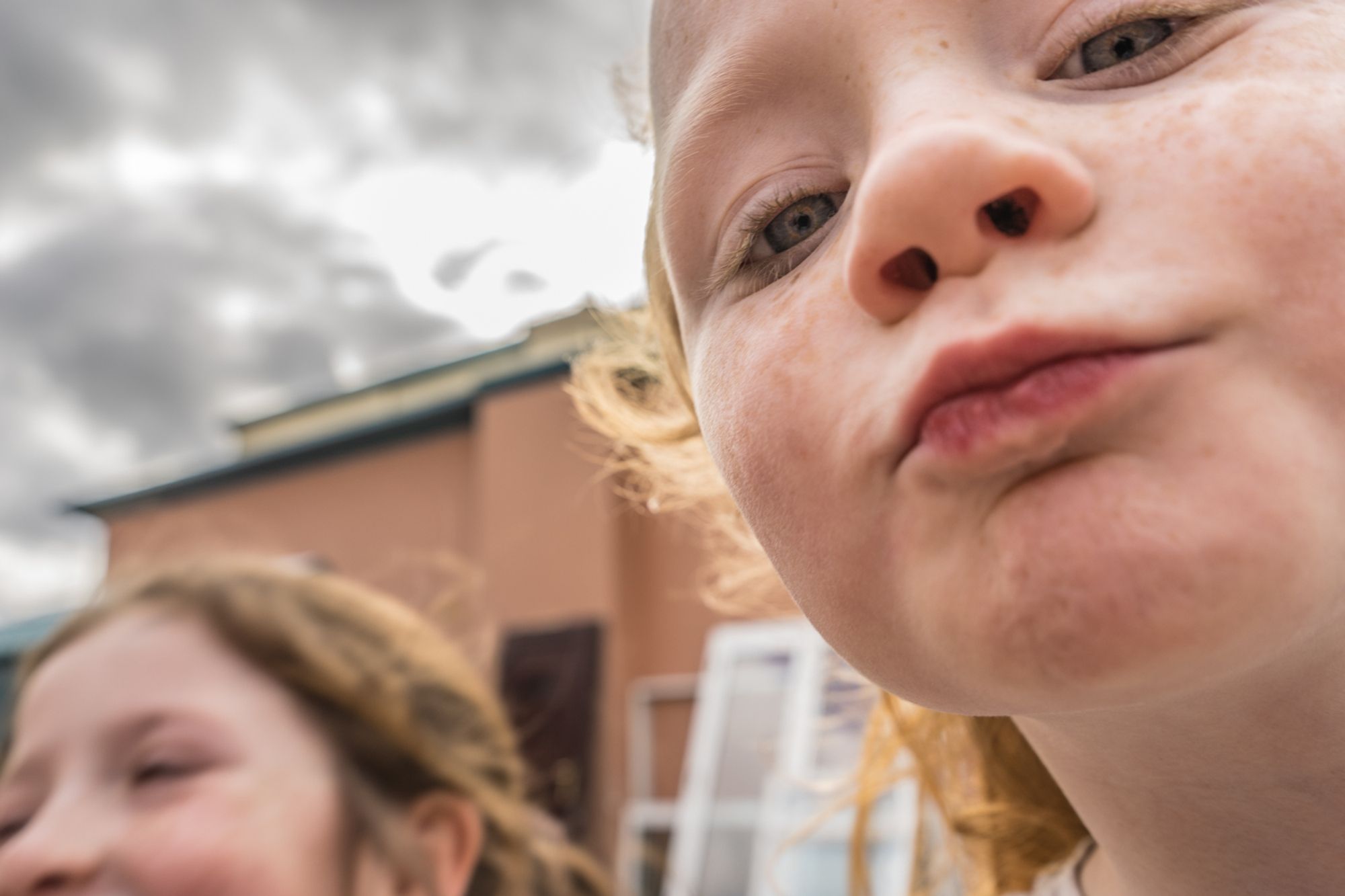
Recognition of Traveller ethnicity is pivotal in beginning to address the systemic racism faced in contemporary Ireland.
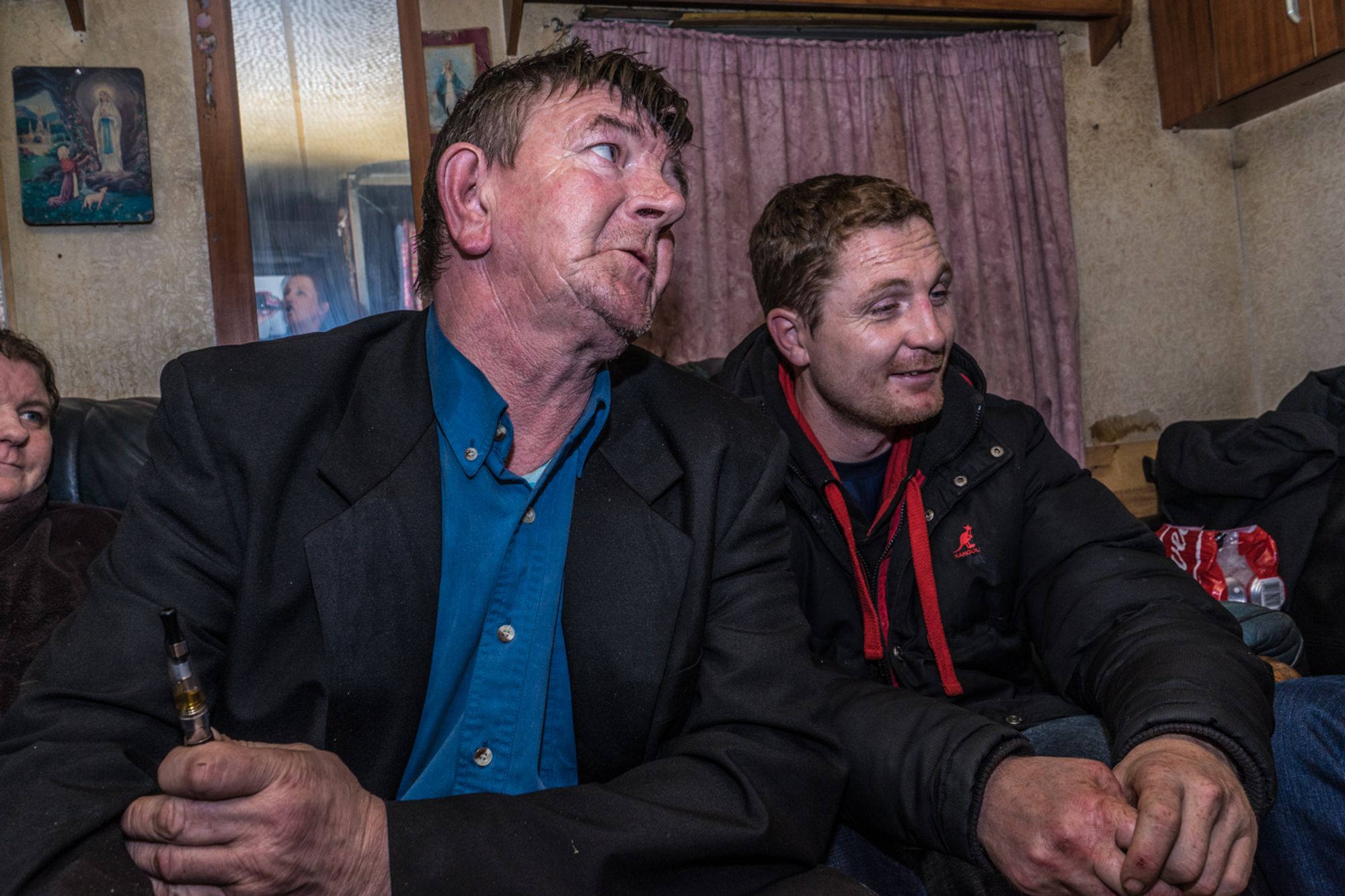
John (52) talks with Michael (34) and other Irish Traveller in his caravan.
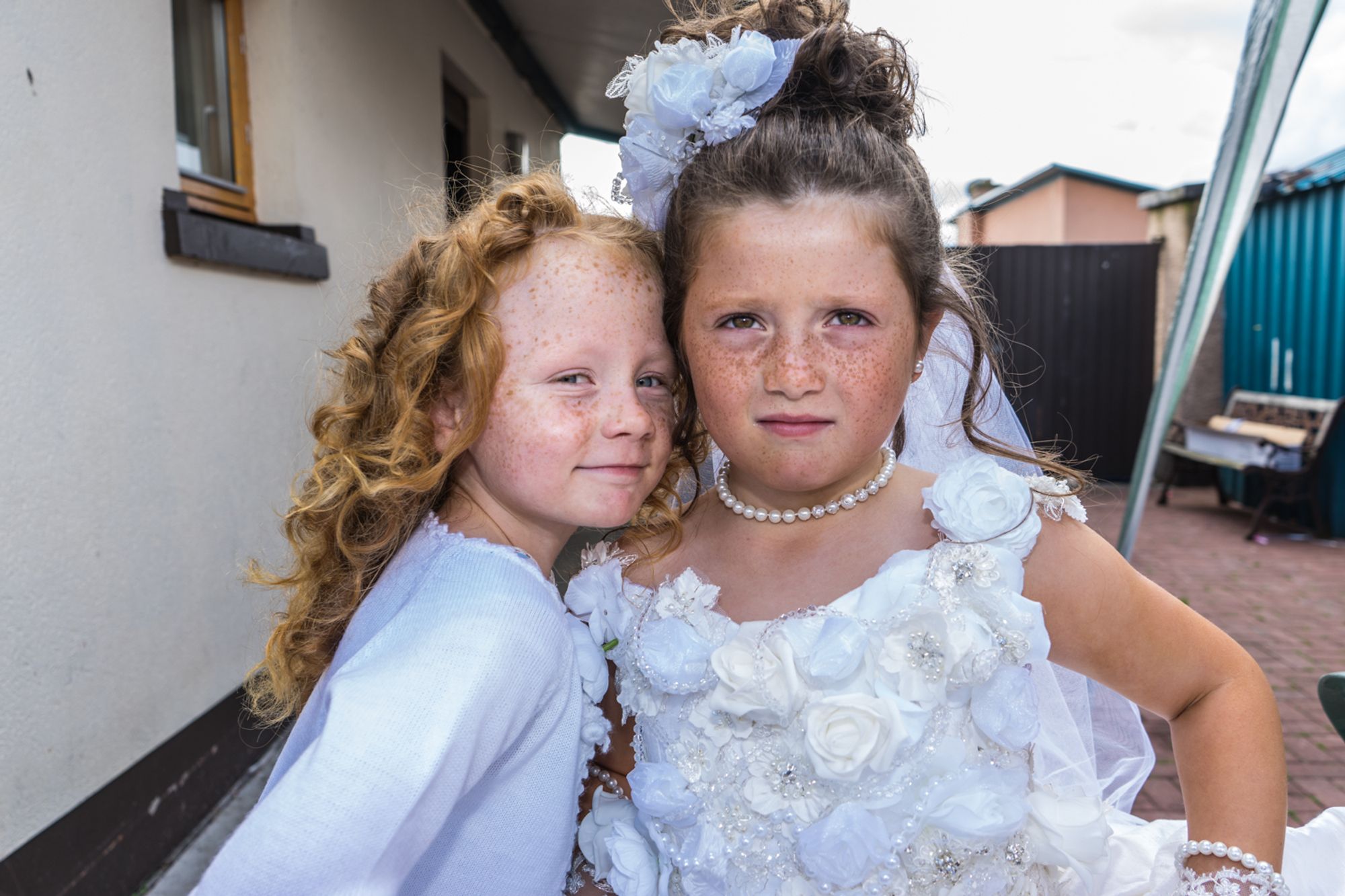
Mary (6) and Maggie (7), Irish Travellers, on the day of their First Holy Communion.
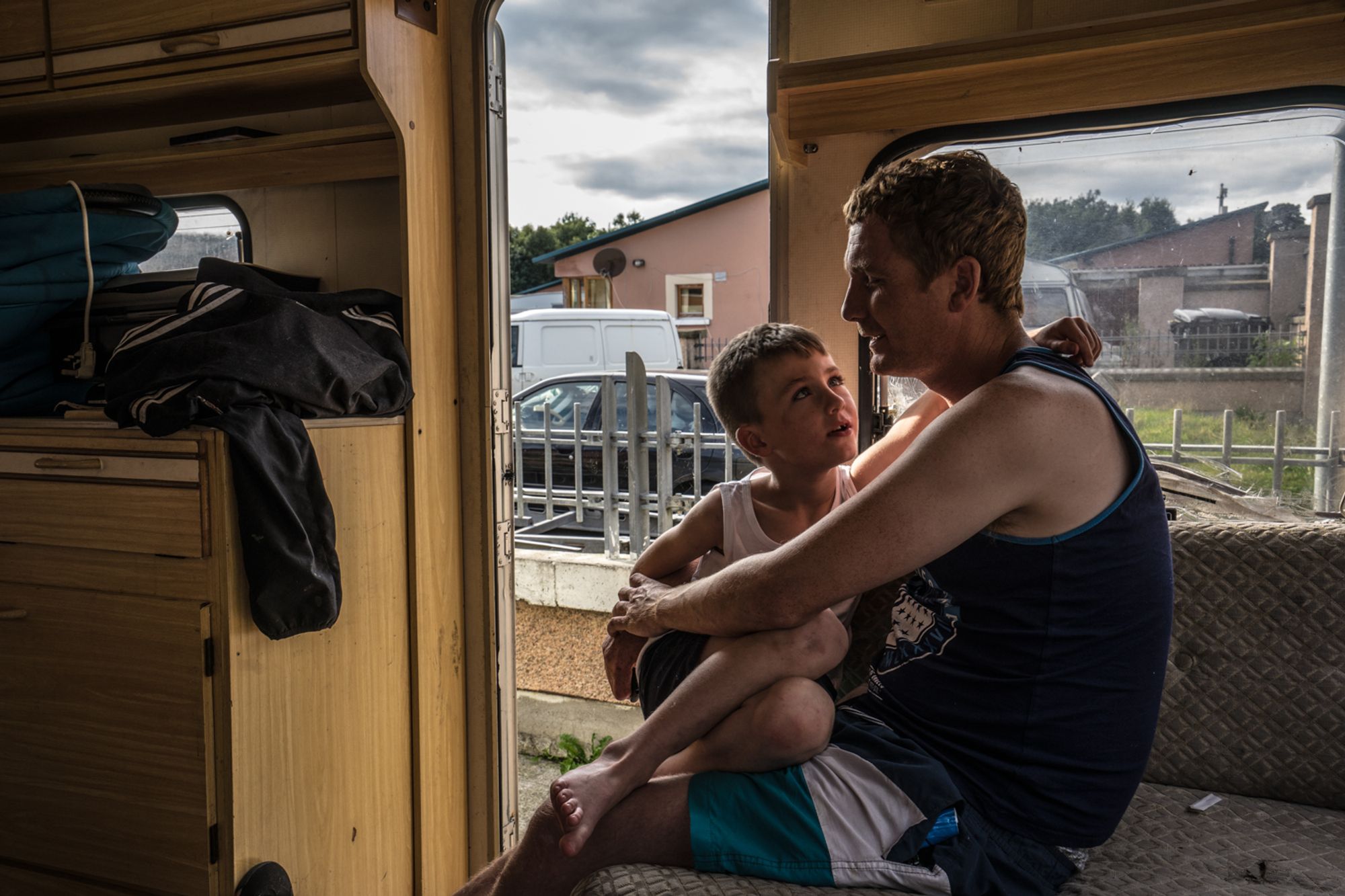
"Can we play football Da'", asks Michael Jnr. Michael with his son in his caravan. Media often portray male Irish Travellers in an aggressive light. Like all fathers, Michael wants the best for his children.
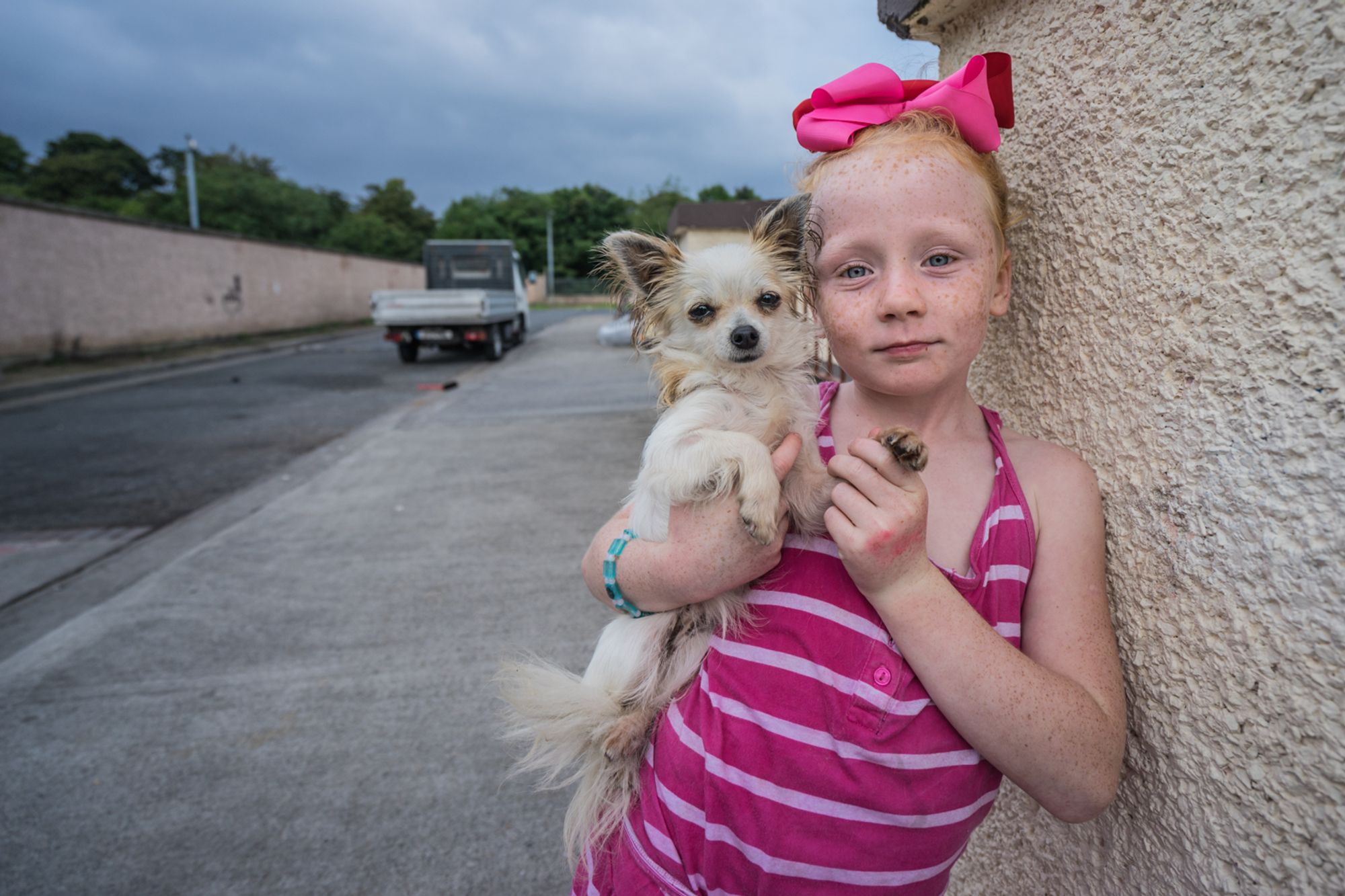
Maggie (8) with her pet dog.
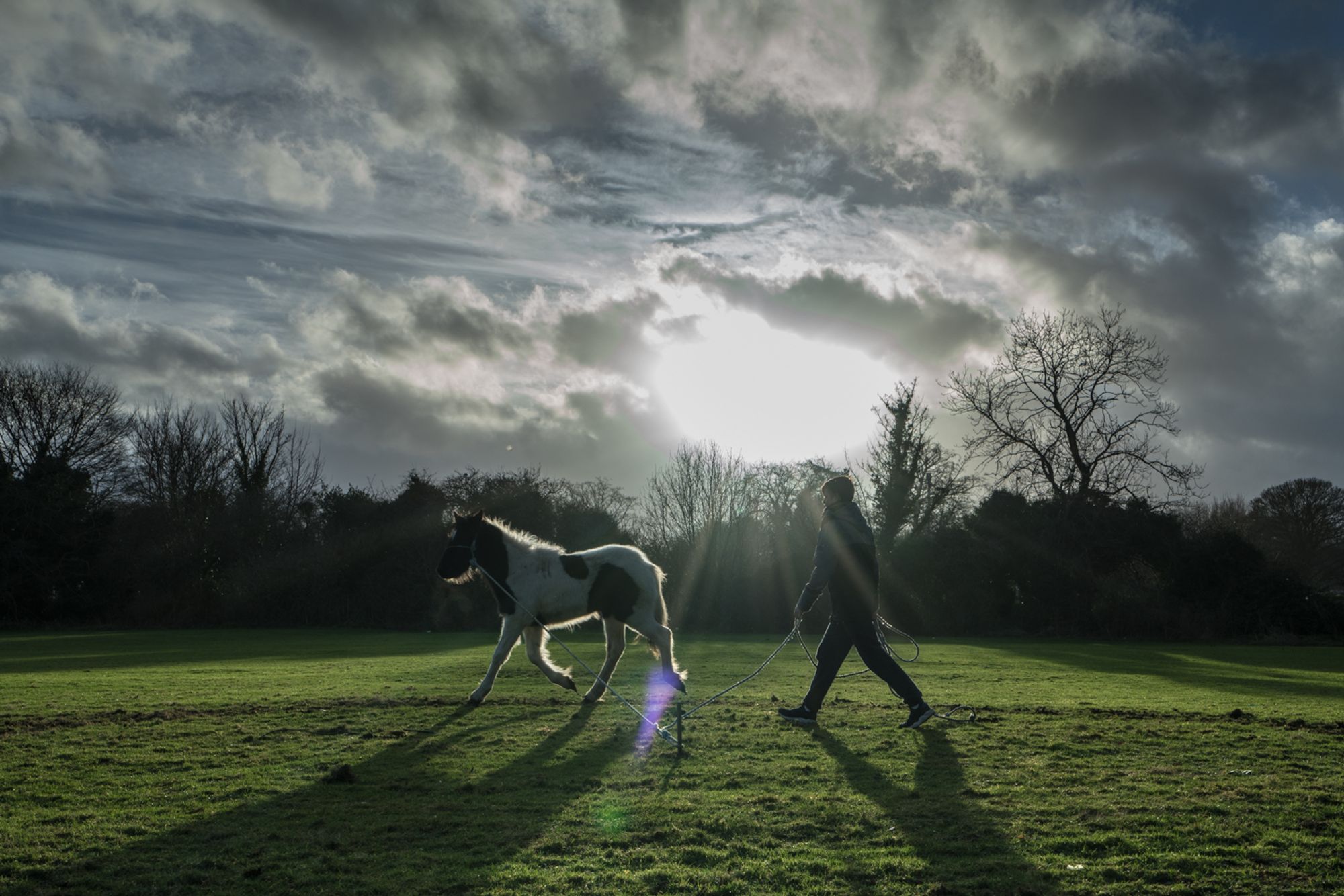
"We were always using horses. Now we aren't allowed to keep them", says Jack (54). "We would have fires to keep us warm in the winter. Moving to halting sites changed all that. We aren't allowed to have fires. I miss the horses. Some of the lads keep them but they often get taken away."
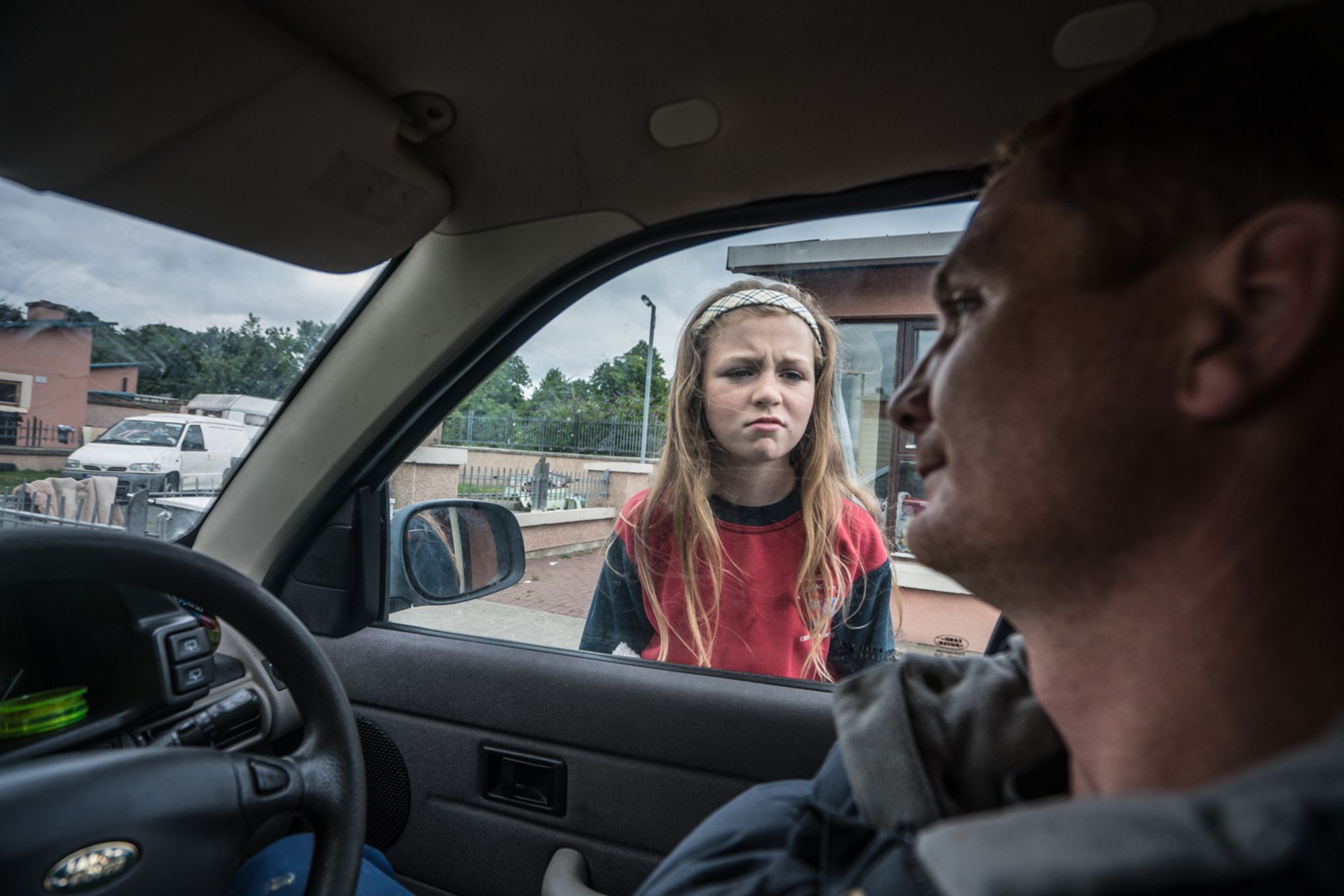
Megan (12) shows her frustration after asking her father Michael (32) for money to buy candy.
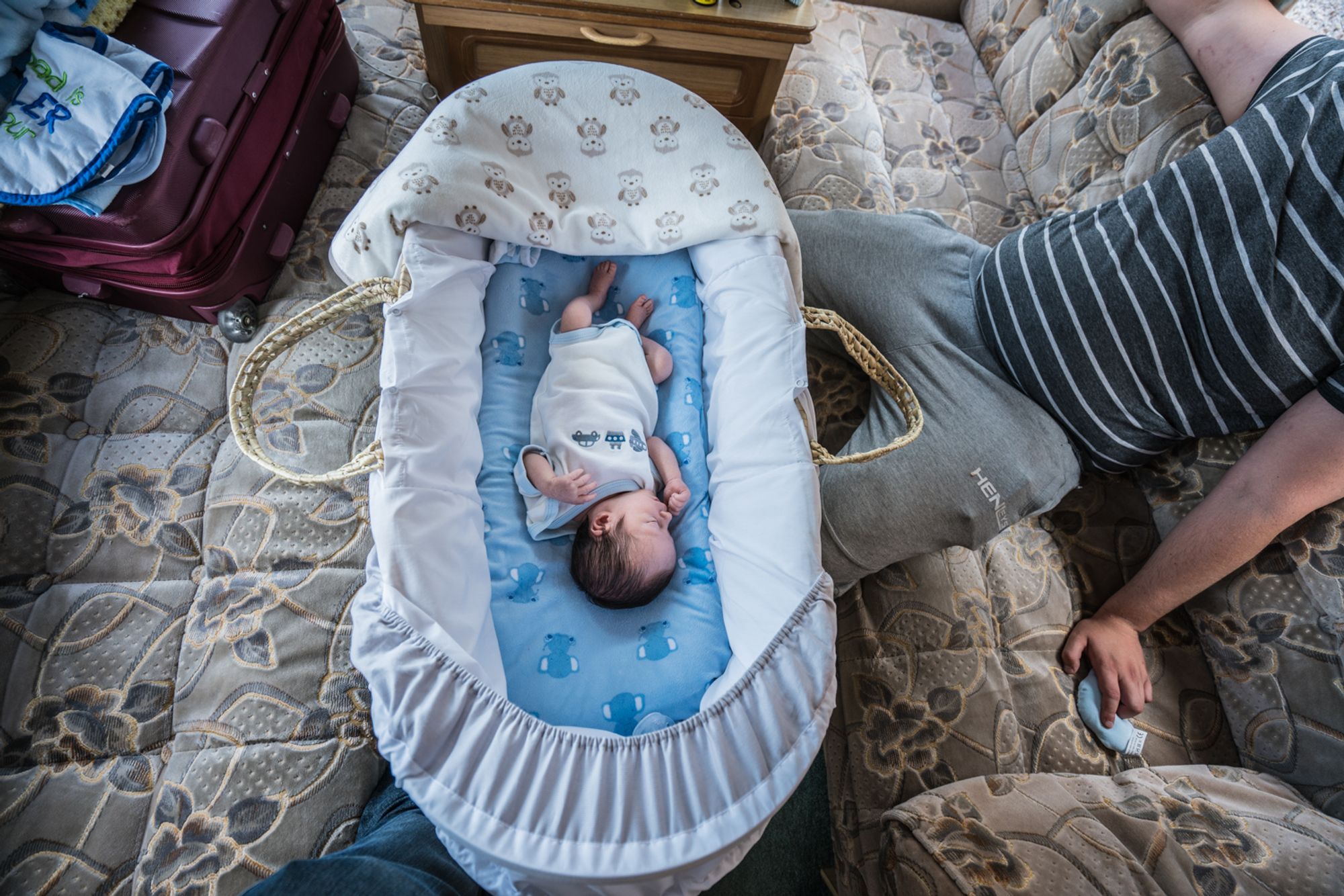
John (24) looks at his newborn baby son in his caravan.
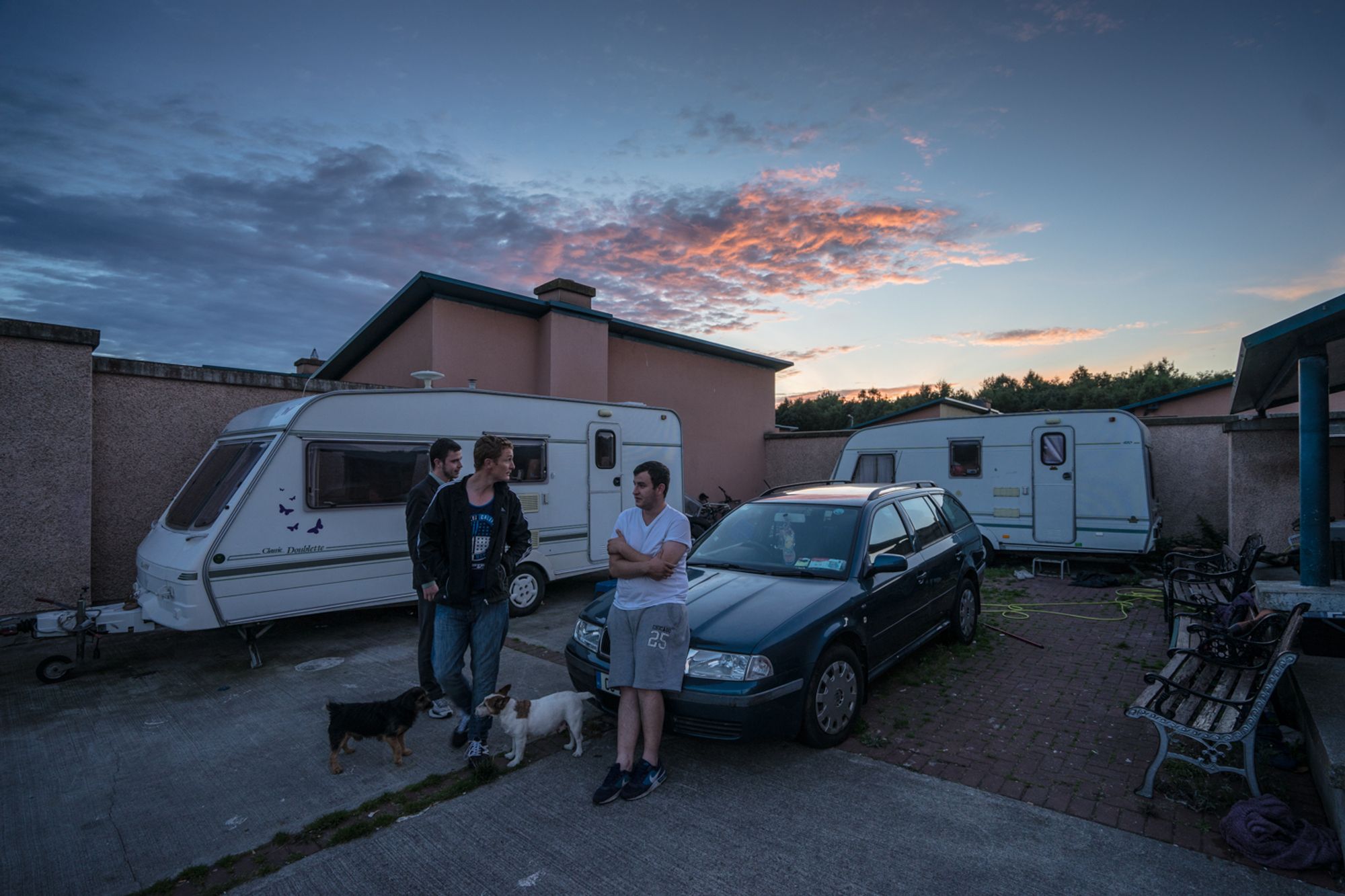
"It's pretty boring around here", says John as he hangs out with Micheal and Mick in John's family caravan bay.